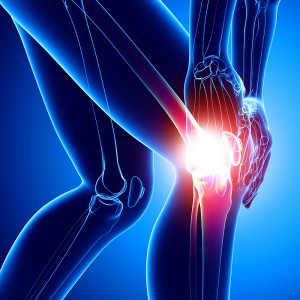 The anterior cruciate ligament or ACL is one of 4 primary ligaments located in your knee. It works to attach the tibia to the femur. ACL injuries are one of the most common knee injuries for athletes involved in sports like soccer, football and basketball.
The anterior cruciate ligament or ACL is one of 4 primary ligaments located in your knee. It works to attach the tibia to the femur. ACL injuries are one of the most common knee injuries for athletes involved in sports like soccer, football and basketball.
ACL tears may occur when the knee is twisted, bent, pulled backwards or strained.
Whether you are interested in learning more about an ACL injury or ACL surgery recovery, here is some important information you should know.
- An ACL Injury Can Lead to Other Knee Ligament Injuries – Once an ACL injury has occurred the knee becomes unstable. The ACL-deficient knee increases mechanical stress on the meniscus and the chondral surfaces covering the bones in the knee joint. Because of the instability, there is an increased risk of injury of the meniscus and the articular cartilage after an acl injury has occurred.
- An ACL Injury is Associated with Early Onset Osteoarthritis. A person with an ACL injury plus a meniscal tear is at even higher risk for developing early onset osteoarthritis.
- Delaying ACL Surgery Can Lead to Further Damage. There is an increased risk of developing further meniscal and cartilage lesions with the lengthening of the time from injury to surgery.
- Certain People May Be At Higher Risk to Further Injury When Delaying ACL Surgery – A scientific study in the December 2015 issue of the American Journal of Sports Medicine reported a study that noted if you were male with an increased BMI, and you waited greater than 12 months to have your ACL reconstruction surgery performed, you were at greater risk for tearing the medial meniscus during the time between injury and surgery.
- BMI and Age May Be Primary Risk Factors for People who Delay ACL Surgery – The authors also found that there was a greater risk of cartilage damage to the medial femoral condyle if the patients waited greater than 12 months to have their surgery and had an increased BMI and increased age. The male gender did not put them at greater risk for this problem.
As with any medical condition, if you think you have an acl injury, you should seek a thorough evaluation from a qualified medical provider like an orthopedic doctor. As noted above, delaying treatment for acl injuries may even put you at greater risk for additional ligament injuries and pain.

Recent Comments